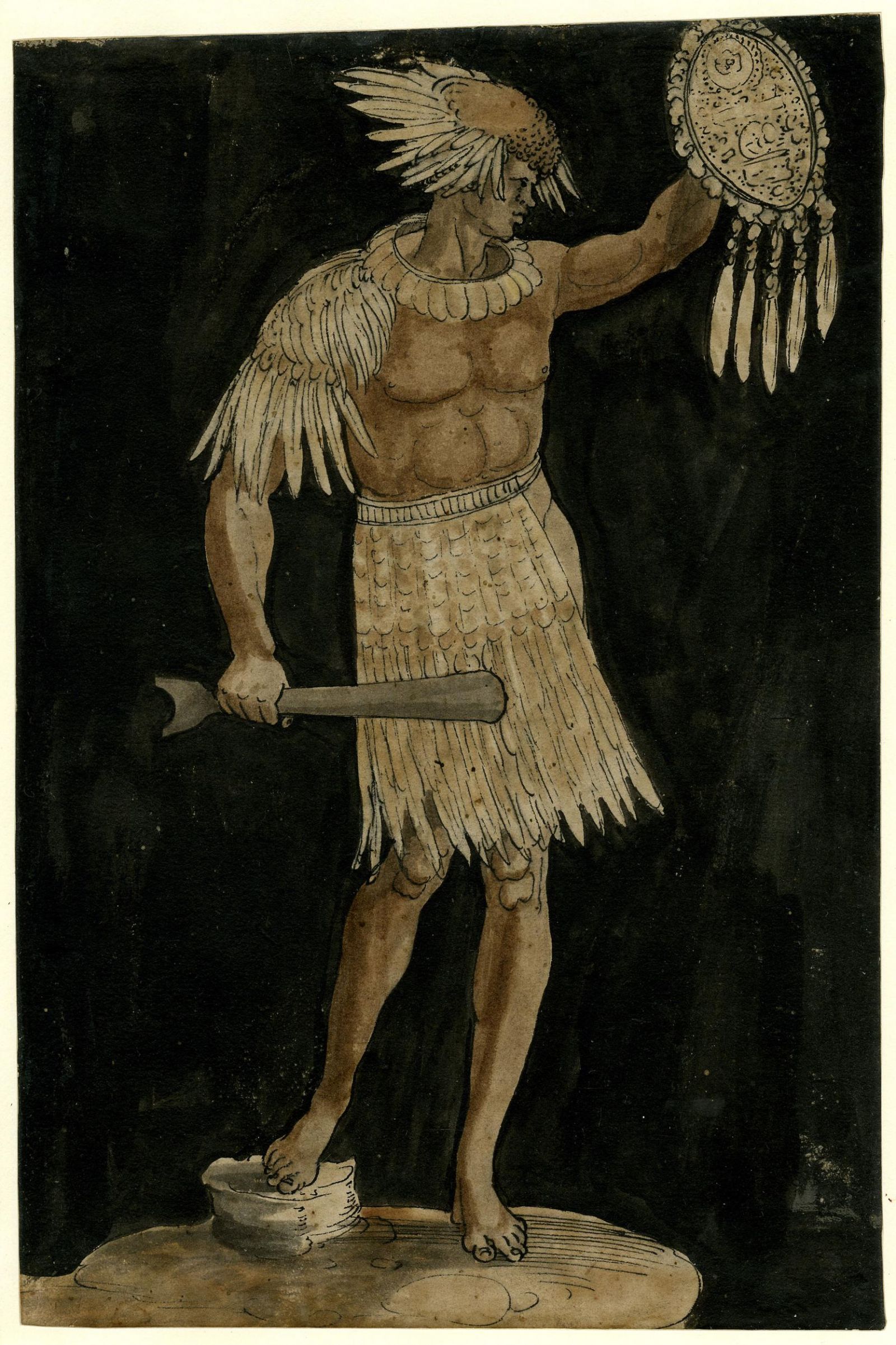KHI 2021+ Lecture Series
Daniela Bleichmar: The Cabinet and the World: Non-European Objects in Early Modern European Wunderkammern

Hans Burgkmair the Elder, Standing black youth dressed in a feather skirt, cape, and head-dress and holding a club and shield, 1520–1530, pen and black ink, with brown, black and grey wash, 23.5 x 16 cm, British Museum, SL,5218.128.
Early modern European collectors proclaimed their curiosity cabinets contained "the world." What do collections from the sixteenth and seventeenth centuries reveal about the ways in which those who assembled, owned, and visited them understood objects from other regions and cultures? Inventories, catalogues, and descriptions of European collections from the period reveal that the reception of non-European objects was characterized above all by practices of geographical and cultural indeterminacy, most notably (1) empty attribution, (2) misattribution, (3) unstable attribution, and (4) lack of attribution. When considered as early versions of museums of "world cultures," cabinets functioned not as sites for the production of knowledge but as sites of worldmaking that absorbed, recontextualized, and repurposed objects with specific geographical and cultural origins and meanings to create undifferentiated, fungible foreignness.
Daniela Bleichmar is Professor of Art History and History at the University of Southern California, where she also serves as the founding director of the Levan Institute for the Humanities and director of the USC Society of Fellows in the Humanities. Her research and teaching address the history of images, objects, and texts in colonial Latin America and early modern Europe, focusing on the histories of knowledge production, cultural encounters and exchanges, collecting, and books. Her research has been supported by the Mellon Foundation, the Getty Foundation, the Getty Research Institute, and the ACLS. Her publications include the books Visible Empire: Botanical Expeditions and Visual Culture in the Hispanic Enlightenment and Visual Voyages: Images of Latin American Nature from Columbus to Darwin. She is currently writing a cultural biography of the Codex Mendoza, an illustrated manuscript produced in early colonial Mexico, which traces the extraordinary life of this transcultural object from Mexico City in the 1540s to London in the 1830s.
This talk is part of the KHI 2021+ Lecture Series, organized by the doctoral and postdoctoral fellows, in collaboration with scientific staff and senior scholars of the Institute. It is envisioned as a forum to reflect on the futures of Art History through conversations with innovative voices in the discipline, working in different areas but sharing methodological concerns.
04 febbraio 2021, ore 18:00
KHI 2021+ Lecture Series
The event takes place online.
Avviso
Questo evento viene documentato fotograficamente e/o attraverso riprese video. Qualora non dovesse essere d’accordo con l’utilizzo di immagini in cui potrebbe essere riconoscibile, da parte del Kunsthistorisches Institut in Florenz a scopo di documentazione degli eventi e di pubbliche relazioni (p.e. social media) la preghiamo gentilmente di comunicarcelo.


